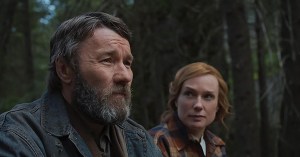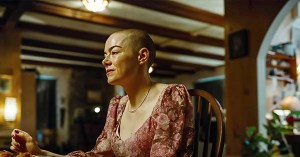HBO’s Euphoria Is the Most Visceral Teen Drama on TV
The teens in this drama may be unrecognizable to most Americans, but for troubled kids and their parents, the show's explicit pain is all too real.
With Euphoria, HBO has delivered an explicitly bleak teen drama. On the heels of the network’s biggest ever series’ end — we’re talking Game of Thrones, people — the premium cabler has swung the pendulum as far as it could go to the other side, giving audiences a piece of entertainment that’s as far from Westeros as it can get. The only dragons in Euphoria are the symbolic ones each and every character is obsessively chasing.
In the series, created by Sam Levinson (Assassination Nation), euphoria isn’t actually a state of mind, but an unobtainable goal — a coveted carrot that’s always just a tiny bit out of reach from the proverbial cart. The allure of satisfaction, in all its torturous forms, drives our teen heroes as they face the daily challenges of high school life in today’s digital age.
There’s a beautiful dreamlike quality here that, at times, feels akin to CW’s Riverdale. Yet, at the drop of a hat, the HBO series regularly turns a corner into 13 Reasons Why territory — giving audiences a taste of humanity’s worst qualities as we’re exposed to images of assault, intense drug use, violent pornography, sexual predators, and a whole cavalcade of erect penises, to boot. 13 Reasons Why, the stylized Netflix show about teen rape and suicide, may have pushed viewers close to the edge, but HBO’s new show happily steps right the hell off of it, into the abyss below, leading us to the conclusion that season 1 of Euphoria, which is Certified Fresh at 79% on the Tomatometer currently, is the most visceral teen drama on TV.
At the center of it all is Zendaya’s (Spider-Man: Far from Home) Rue, a 17-year-old drug addict who, as we learn in the program’s pilot, suffered an overdose and was only saved because her younger sister found her in time. Rue’s drug problem goes deep, and it’s a perspective of addiction that TV hasn’t really explored much. It’s been nearly 18 years since the 9/11 terrorist attacks inflicted a deep wound into the fabric of America, but while we tend to focus mainly on the political aftermath and various military actions we’ve been involved in since, not much attention has been given to the generation who grew up in this new reality.
Stories following teens who are disconnected from their parental adult counterparts are nothing at all new, but positing Rue’s introduction to the world with the fall of the Twin Towers playing out in the background helps to supply subtext to the challenges her and other young people have had laid out before them. And as her emotional issues begin to form, her parents are quick to have any and every diagnosis handed her way until she’s juggling multiple medical fixes for multiple anxiety disorders — none of which are really proven to be sound diagnoses to begin with.

(Photo by )
Instead of handling the underlying problem, well-intentioned adults teach young Rue that the best way to cure what ails her is to treat her symptoms. As her relationship with her mother becomes fractured, and her father falls victim to cancer, it was shown as an inevitability that she’d eventually graduate from medically-assigned prescriptions to her own experiments in self-medicating — all just to find the happiness that has, somehow, eluded her this entire time.
There are other characters featured in the show, and yes, we’re about to get to them. But it’s necessary that we really explore Rue’s struggles and motivations because, not only is Zendaya the lead of the show, her performance is the program’s backbone. She is the ongoing narrator, walking us through the misadventures of her peers, giving us a fly-on-the-wall perspective of the bigger picture, as the series begins to unfold. And as Rue even admits, she’s not the most reliable narrator. You know, because she’s always high.

(Photo by Eddy Chen/HBO)
She may be out of rehab, but Rue’s not at all into staying sober. As she’s integrated back into high school life, we’re introduced to a handful of her peers, all carrying around their own potentially traumatic baggage. Transgender teen Jules (Hunter Schafer) finds a version of solace in random sexual encounters with older men — except maybe it’s a form of self-harm — while high school jock Nate (Jacob Elordi) has extreme anger issues, leading him to extreme acts of violence. In episode 2, we learn that his flashy flavor of toxic masculinity is indeed masking some deep-seated sexual insecurities, all brought on at a young age after he discovers explicit videos of his father’s secret homosexual escapades. Mix in the sordid connection that the older man Jules hooked up with is actually Nate’s dad Cal (Eric Dane) and the show really takes shape into something even Bret Easton Ellis would envy.
Then there’s Kat (Barby Ferreira), the nerdy girl who loses her virginity on a drunken dare at a house party. From the initial shame brought on by discovering that her sexual awakening was caught on video, and distributed across the school — even prompting a brief body-shaming interlude with the school principal — she quickly learns of the connective power of sex and the internet. For the first time in her life, she’s the object of desire and that discovery changes her entire life.

(Photo by HBO)
Euphoria is a show that is out to press people’s buttons. Cut from the same unsettling cloth as angsty teen movies like Harmony Korine’s Gummo and Larry Clark’s Kids, Levinson — who has gone on the record about tapping into his own history with drug abuse to write this story — gives us a program that sounds a warning siren about the dangers teens continue to face in the real and online realms, especially for complacent parents everywhere, who are alerted to get involved in their kids’ lives and pay attention.
The series features adults, but when they make their appearance, their roles are mostly presented as background fodder. Euphoria actually has a lot in common with the 2014 indie horror hit It Follows; the parents aren’t really in the picture, the overall environment has an inescapable muted quality of a suburban purgatory, and the teens in both that film and this TV series are stalked by their own demons — of course, the ones in the HBO series aren’t STD zombies out to commit post-coitus murder. But we digress.

(Photo by Eddy Chen/HBO)
All this said, there are definitely gripes with the show’s tone and subject matter. Levinson has both writing and directing credits here, but at times it does feel as if his vision is a bit disconnected from the 2019 reality these kids are living in.
Writing in The New York Times this weekend, health care correspondent Margot Sanger-Katz and Indiana University School of Medicine professor of pediatrics Aaron E. Carroll observed: “HBO’s new series Euphoria portrays a youth bacchanal that’s a stretch even for Hollywood. The show suggests that our modern society, with its smartphone dating apps, internet pornography and designer drugs, has made teenage life more extreme and dangerous than ever before. Actually, nearly the opposite is true.”
Many of the problems these teens face, though, tend to be of the eternal variety, because, really, the trials and tribulations of disaffected youth will always be a thing. Rue’s Hunter S. Thompson–style recollections inject an oddly engaging Fear and Loathing quality, giving Euphoria a pointed and visually stunning perspective.

(Photo by Eddy Chen/HBO)
Rue knows drugs are bad. But her self-hatred runs deep. This drive to be happy, along with her predisposition to despise herself, sets the foundation for the polarizing nature of the whole show.
While it may be difficult for many of Euphoria‘s adult audience to completely relate to her struggles — and that of Jules, Nate, Kat, and the rest — certain visceral elements punch their way through the veil, reminding us of bullies from the past, of the suffocating pressures of adolescent life, of the burdening weight of societal expectations, and the primal need to be loved and accepted that drives each and every one of us to move on, if not exactly forward.




